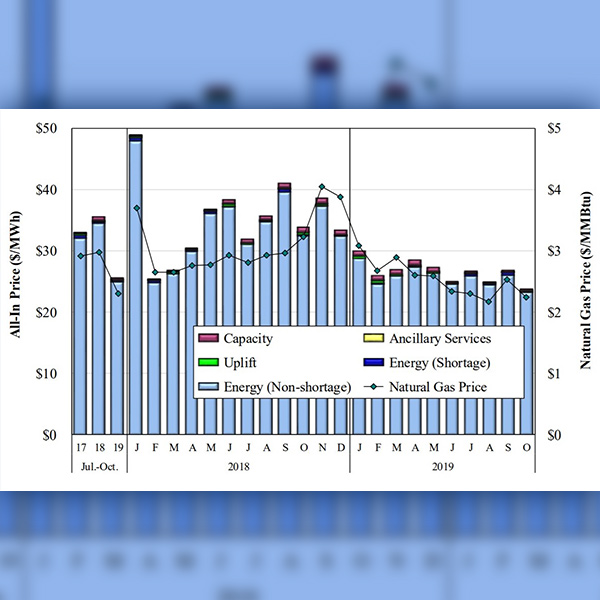By Amanda Durish Cook
Environmental advocates are stepping up calls for MISO to split up its Environmental and Other Stakeholder Groups sector to provide them with a more singular voice — and the idea may be getting some traction.
Sector members continue to press MISO’s Steering Committee to expand the number of sectors in the Advisory Committee, affording dedicated space for green advocates in RTO activities.
“In the long run, if you don’t offer a new way for folks to join MISO … there are always going to be problems,” John Moore, director of the Natural Resources Defense Council’s Sustainable FERC Project, said during a Steering Committee conference call Thursday.
Advisory Committee members in September indicated they weren’t yet ready to embrace the idea of creating an 11th sector to accommodate hard-to-pin-down members. At the time, the Power Marketers and Brokers sector offered to take on the “Other” contingent temporarily to see if it was a harmonious fit. (See Scant Support for 11th MISO Sector.)
But the Steering Committee is now suggesting that the Advisory Committee re-examine the issue.
Moore this week sent an email urging Steering Committee members and MISO staff to revive the issue. He wrote that “regardless of the intentions for creating this sector at the inception of MISO, a sector composed of entities in addition to ‘environmental’ is problematic at best and creates governance challenges within our sector.”
“For that reason, we encourage MISO to develop a solution that allows members to participate in the stakeholder process and governance in ways that do not render our sector dysfunctional,” Moore wrote citing two instances of entities joining the sector that were not “aligned” with its mission.
“In one instance, it was several gas pipeline development companies, and in another case, it was several competitive transmission developers,” he wrote.
Moore said those two instances “substantially disrupted our ability to operate as a cohesive sector.” He also wrote that he fears that prospective MISO member the Lignite Energy Council (LEC) may end up in the sector because the organization “does not fit neatly into any sector because it is so diverse in its membership.”
“MISO needs a durable solution that can allow for meaningful participation in the stakeholder process for entities like the LEC, who wish to become members, without forcing them into sectors with fundamentally different interests,” Moore wrote.
During the conference call, Moore suggested MISO at least create a “holding” space for new members that may have a difficult time deciding where they fit in.
“We don’t want our sector to become a repository for just anyone that doesn’t have a home,” Moore said.
“I’m very sensitive to the concerns of the Environmental sector, but where do we draw the line on creating new sectors? … I’m struggling myself on coming up with an answer to that,” WEC Energy Group’s Chris Plante said.
Plante said his Municipals, Cooperatives and Transmission Dependent Utilities sector also contains groups that don’t always agree with each other.
But some Steering Committee members said MISO cannot expect to persist with the same 10 sectors given the increasingly mercurial nature of the energy industry.
“The world is changing, and the industry is changing,” Manitoba Hydro’s Audrey Penner said, citing Bill Gates’ secretive Heliogen solar startup that has created solar arrays capable of generating heat above 1,000 degrees Celsius with the help of artificial intelligence. She said it was an example of the “new players entering our industry.”
“To the extent that we need to create new sectors, that’s going to be pressed upon us whether we like it or not. We’re not in a static industry,” Penner reminded fellow members.
Penner argued that MISO could create as many as three new sectors, for example, and said members “could still feel comfortable and make their voices heard.”
Steering Committee Chair Tia Elliott said the topic would be passed to the Advisory Committee in time for its Dec. 11 meeting as part of MISO Board Week in Indianapolis.
Remove Affiliation Obligation?
Steering Committee leaders on the same call also discussed eliminating the requirement that entities must join a sector in order to become MISO members.
Current rules dictate that organizations seeking MISO membership must declare affiliation to one of the 10 sectors in order to gain entry. Sectors are used for member voting purposes in the Planning Advisory Committee and Advisory Committee.
The Steering Committee ultimately agreed to hold off on making draft changes to MISO’s Stakeholder Governance Guide until further discussion. Any revisions to the governance guide must go before the Advisory Committee before they are adopted.
Moore said dropping the requirement might be a positive step, freeing elusive and prospective members from trying to narrow down their purpose.
“I think it’s definitely a sticking point,” he said.





